The Improbability of Othello
Rhetorical Anthropology and Shakespearean Selfhood
JOEL B. ALTMAN
The University of Chicago Press
Chicago and London
Joel B. Altman is professor emeritus of English at the University of California, Berkeley.
The University of Chicago Press, Chicago 60637
The University of Chicago Press, Ltd., London
2010 by The University of Chicago
All rights reserved. Published 2010
Printed in the United States of America
19 18 17 16 15 14 13 12 11 10 1 2 3 4 5
ISBN-13: 978-0-226-01610-8 (cloth)
ISBN-13: 978-0-226-01612-2 (electronic)
ISBN-10: 0-226-01610-2 (cloth)
Library of Congress Cataloging-in-Publication Data
Altman, Joel B.
The improbability of Othello : rhetorical anthropology and Shakespearean selfhood/Joel B. Altman.
p. cm.
Includes bibliographical references and index.
ISBN-13: 978-0-226-01610-8 (cloth : alk. paper)
ISBN-10: 0-226-01610-2 (cloth : alk. paper) 1. Shakespeare, William, 15641616. Othello. 2. Probability in literature. 3. Self in literature. 4. Rhetoric, Renaissance. I. Title.
PR2829.A845 2010
822.33dc22
2009021507
 The paper used in this publication meets the minimum requirements of the American National Standard for Information SciencesPermanence of Paper for Printed Library Materials, ANSI Z39.481992.
The paper used in this publication meets the minimum requirements of the American National Standard for Information SciencesPermanence of Paper for Printed Library Materials, ANSI Z39.481992.
For Elizabeth and Caroline
Nothing is more odious in Nature than an improbable lye; And certainly never was any Play fraught like this of Othello with improbabilities.
THOMAS RYMER, A Short View of Tragedy
O false and treacherous Probability,
Enemy of truth, and friend to wickednesse;
With whose bleare eyes opinion learnes to see
Truths feeble party here, and barrennesse.
When thou hath thus misled Humanity,
And lost obedience in the pride of wit,
With reason darst thou judge the Deity,
And in thy flesh make bold to fashion it.
Vaine thought, the word of Power a riddle is,
And till the vayles be rent, the flesh newborne,
Reveales no wonders of that inward blisse,
Which but where faith is, every where findes scorne;
Who therfore censures God with fleshly sprite,
As well in time may wrap up infinite.
FULKE GREVILLE, Caelica 103
ACKNOWLEDGMENTS
appeared in Studies in the Literary Imagination (1993): 85113 (copyright by the Department of English, Georgia State University). Early stages of my research were made possible by fellowships from the American Council of Learned Societies and the John Simon Guggenheim Memorial Foundation.
In the course of researching, writing, and composing this book, I have become indebted to many colleagues and friends, who read parts originally presented as conference papers and also drafts of chapters that were shaped with the benefit of their thoughtful questions and advice. For all their help, I want to thank Janet Adelman, Paul Alpers, Bradin Cormack, Richard Feingold, Stephen Greenblatt, Lorna Hutson, Victoria Kahn, Jeffrey Knapp, Peter Platt, Norman Rabkin, and especially Thomas Sloane, whose historical insight, rhetorical mastery, and generous friendship were resources I drew upon again and again. I also wish to thank my editor, Alan Thomas, for so astutely shepherding the manuscript to publication. I am most grateful to my family, for their patient skepticism and unflagging faith over the years, and to my dear Sandra, for her exemplary moral courage and loving support.
PROLOGUE
As If for Surety: The Problematics of Shakespearean Probability
There is a moment early in Othello when Shakespeare reveals with startling clarity the medium in which all the actions of the play unfold. Alone onstage at the end of Act I, Iago declares his hatred of the Moor and offers as cause the rumor that Othello has cuckolded him. Then he makes what appears to be an unconscionable decision:
I know not if t be true,
Yet I, for mere suspicion in that kind
Will do, as if for surety.
(1.3.38789)
Mere suspicion, to be sure, is a relatively weak degree of probability by any count, and we may recognize the promptings of malice behind the rashness with which Iago grasps it as a basis of action. Nonetheless, his bold announcement that he will be acting only as if he possessed the truth opens a unique perspective on the behavior of everyone in the play, even those we are not inclined to call villain. Everyone, that is to say, does as if for surety.
It is into this world of contingency that we insert ourselves when we reason an act, and the materials of our reasoning are of the same stuff as the world we enter . When we consider taking a course of action whose end is unknown, or attempt to reconstruct an event whose causes are obscure, we work primarily with probabilitiesand a probability, according to Aristotle, is a thing that usually happens; not, however, as some definitions would suggest, anything whatever that usually happens, but only if it belongs to the class of the contingent or variable. It bears the same relation to that in respect of which it is probable as the universal bears to the particular (Rhet. 1357a).
Reasoning with oneself and others in any situation that is only probable is always a matter of persuasion not demonstration, and this is effected through a variety of instruments. The most useful are signs, testimonies, and examples. Testimony may be drawn from the collective wisdom of the culture in the form of proverbs, sententiae, apothegms, and opinions, which lend authority to the construction of an interpretation that renders a past action intelligible and a future event relatively predictable and morally acceptable. Examples are precedents, whose resemblances to current concerns suggest the likelihood of history repeating itself and therefore offer critical purchase on the issue at hand. Signs are the circumstances that accompany and qualify a matter open to investigation, capable of giving it a distinctive shape rich with meaning.
These last consist, as Cicero remarks, of persons, places, times, actions, occurrences, those incidental and sometimes essential features that constitute the natures of the facts and transactions (De part. orat. 35). Such natures may be comprehended by considering the physical qualities of the persons involvedtheir health, appearance, strength, age, and sex; their intellectual capacity, moral character, and emotional predispositionsand the accidental details of their lives, such as social status, education, occupation, friends, connections, power, and wealth. The place where an incident occurs may be suggestive: is it on the coast or inland, on land flat or mountainous, smooth or rugged, salubrious or unhealthy, shady or sunny? And its human significance must be scannedis it cultivated, inhabited, fortified, famous, obscure, or sacred? The time of the action should be studied with regard to the hour of day or season of the year, whether it falls in peacetime or wartime, on a workday or holiday, and on what specific festival or solemnity. One also must decide whether calculation or chance is more likely to have brought it about. Significance may lurk in tell-tale tracesfor instance a weapon, blood, a cry, a stumble, change of colour, stammering, trembling, or anything else that can be perceived by the senses; also some sign of preparation or of communication with somebody, or something seen or heard or hinted at later on. By carefully reviewing all those elements that circumstance an action, one may discover its true natureprobably.
I
Such are the ways in which human beings do, as if for surety in the twilight world of probabilitysome more, some less self-consciously. Iago, as we have seen, is quite open about his behavior, but that does not mean the others in the play are not doing much the same thing in their own characteristic idioms. Once alert to this possibility, we find that the world represented by Shakespeare in
Next page
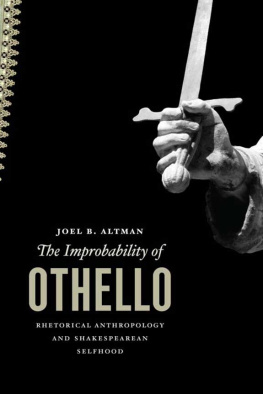
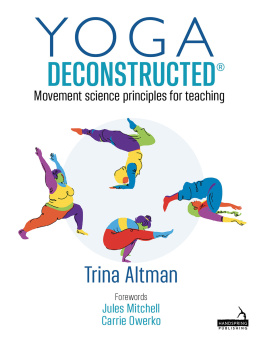
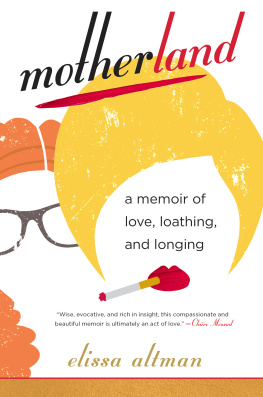

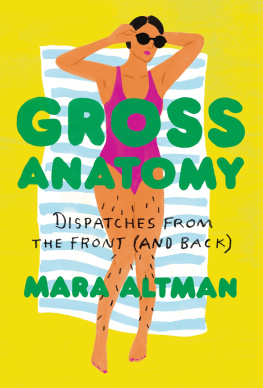

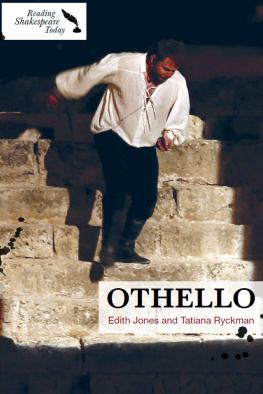



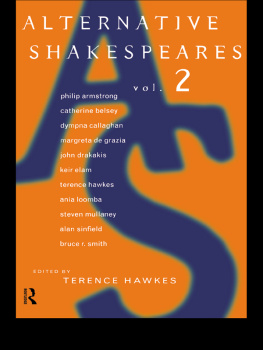
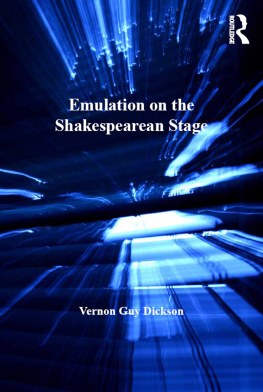
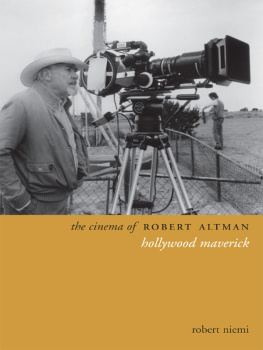
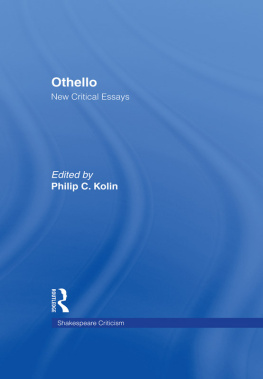

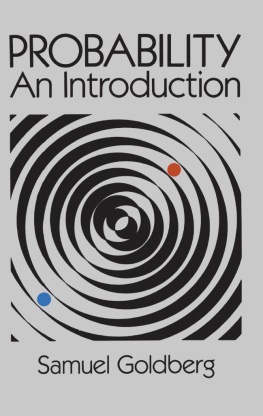
 The paper used in this publication meets the minimum requirements of the American National Standard for Information SciencesPermanence of Paper for Printed Library Materials, ANSI Z39.481992.
The paper used in this publication meets the minimum requirements of the American National Standard for Information SciencesPermanence of Paper for Printed Library Materials, ANSI Z39.481992.